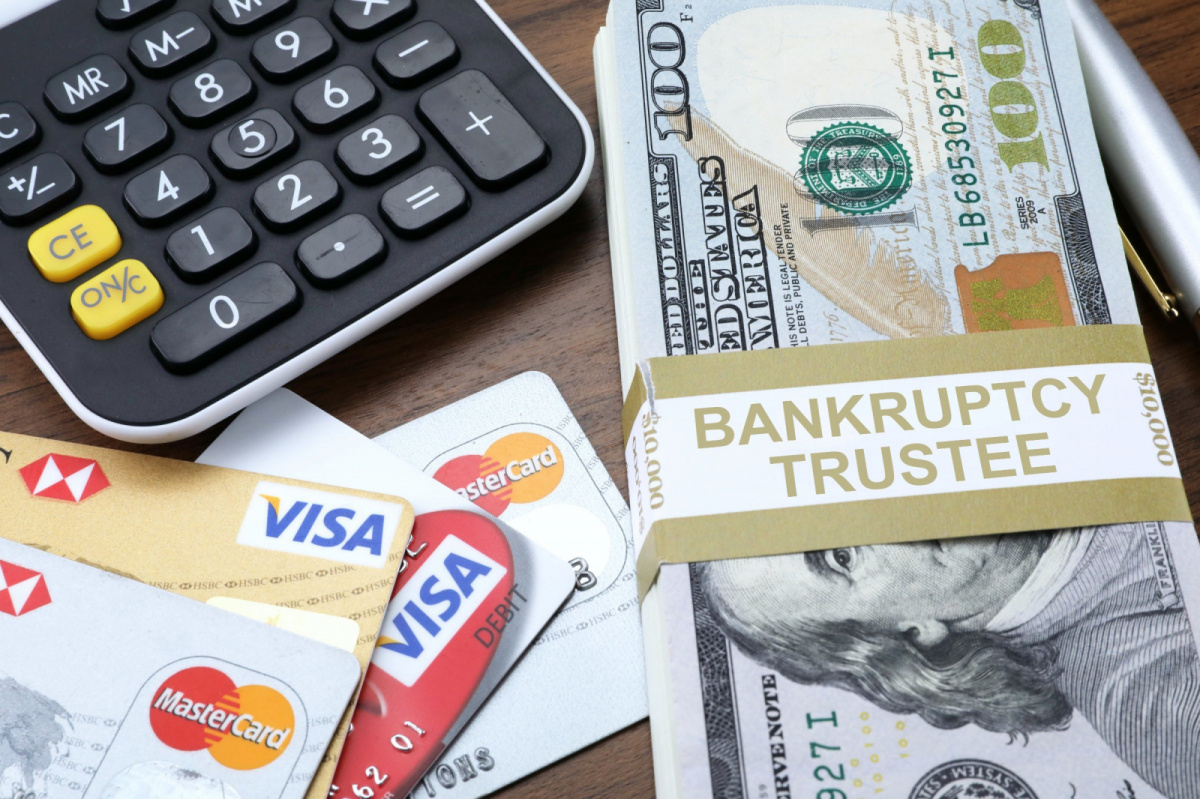A basic and precise definition of bankruptcy is a legal debt relief tool that lets all or some debt owed by an individual be forgiven after meeting certain criteria.
Let’s face it. Understanding how to file bankruptcy is not for the faint of heart. When I started covering bankruptcy, I could not keep straight the differences between Chapter 7 and Chapter 13 bankruptcy.
You may be facing additional financial stress that compounds the issue of wanting to gain expertise in bankruptcy. I felt like I needed a “bankruptcy for dummies” article. The purpose of this article is to give you a bankruptcy for dummies crash course, so you can be ready for your free bankruptcy consultation.
If you read through this article to its end, you’re definitely going to learn the following:
- Bankruptcy definition
- Types of bankruptcy
- Bankruptcy Process
- Cost
- Alternatives
What is bankruptcy?
There are many misconceptions about what bankruptcy truly means. However, a basic and precise definition of bankruptcy is a legal debt relief tool that lets all or some debt owed by an individual be forgiven after meeting certain criteria.
When you qualify, the bankruptcy issues a discharge (forgiveness) of debt. Before qualifying, the trustee will evaluate your claim, income, expenses, and assets before coming to a decision.
Types of Bankruptcy
The most common types of bankruptcy issued by the bankruptcy court are Chapter 7 bankruptcy, Chapter 11 bankruptcy, and Chapter 13 bankruptcy. If you need a bankruptcy discharge, then I’ll advise that you first understand the meaning of each bankruptcy type before filing for a bankruptcy discharge.
How Chapter 7 and Chapter 13 bankruptcy works
Although there are many types of bankruptcies, most consumers can only apply for Chapter 7 or Chapter 13 bankruptcy. If you’re reading this article to clear off your personal debts, then you should file for one of these two bankruptcy types. Let’s help you with an idea of what both bankruptcy types entail. Here they are:
Chapter 7 bankruptcy:
- You can get a discharge within 120 days.
- It’s one of the most affordable debt relief options
- Assets that are not exempted by law can be liquidated
- Debtors income must be within the acceptable amount
- Details of the discharge will remain on your credit report for a 10-year period
- You often have to qualify for Chapter 7 bankruptcy by taking the means test, a bankruptcy form specifically designs to measure whether you have the means to pay back some of the debt.
Chapter 13 bankruptcy
- Debt is discharged in 3 or 5 years after filing for bankruptcy
- Chapter 13 bankruptcy is often more expensive
- No qualification is required as long as you are under the debt limit
- Debtors stand a better chance of keeping their assets in Chapter 13 bankruptcy
- Monthly payments are required
- Information of bankruptcy stays on a credit report for 7 years
The step to getting a discharge is a pretty straightforward one. For a good majority of people, it involves speaking to an attorney, taking some courses online, submitting documents to back up your claims, and meeting with creditors.
What’s the cost of filing a bankruptcy
You may be more in the Chapter 7 bankruptcy cost as that is often variable from a bankruptcy attorney to attorney. Chapter 13 bankruptcy attorneys often charge the “no look” fee in their district.
Your inability to afford your monthly bills in itself is a sign that you’ll likely not be able to afford your bankruptcy payments. Attorney’s understand this dilemma, as such, they often take payments to help bankruptcy seekers with a more friendly way to pay attorney fees.

Other than attorney fees, there’s also the filing fee. The filing fee ranges from $300 to $400 and it’s collected by the bankruptcy court. The amount charged by bankruptcy attorneys varies widely, so we can’t estimate how much an attorney will require you to pay.
Bankruptcy Alternatives
Don’t want to file for a bankruptcy discharge? There are multiple alternatives to filing bankruptcy. In this section of the article, we’ll talk about some of those alternatives. But before diving into the crux of the article, we’ll first elucidate on a free tool for analyzing the debt. This free tool is a bankruptcy decision portal with calculators for estimating the cost of filing for bankruptcy according to the residence of the debtor.
As we discussed earlier, you should understand the alternatives to bankruptcy; this way, you can know the best option and the next best one to solve your financial woes.
Let’s discuss your alternatives to bankruptcy that you can use.
Debt Payoff Planning
Debt payoff planning involves paying off your debt based on the modalities of the savvy, avalanche, or debt snowball method. This debt payoff method has no negative impact on your debt payment.
Negotiate directly with your creditors
You’ll be surprised by how much of a reduction you’ll get when you negotiate your loan terms with your creditors. However, if you’re dealing with a creditor that doesn’t want to negotiate, then you have no other choice than to skip to other alternatives below.
Debt Settlement
Debt settlement involves hiring companies that help to negotiate total debt owed. Hiring the service of a reputable debt settlement company can significantly help to lower your total debt owed.
Debt Management
Debt management companies are those that help to negotiate on interest rate reduction. Although they’re not as effective as debt settlement companies, they offer some reduction to the total debt owed.
Should You File Bankruptcy?
You are in charge of that decision. It can be helpful to look at the costs, options, pros and cons, and alternatives to make the most informed decision.
Hopefully, this bankruptcy for beginners guide can help you navigate your options.
Also, here’s what you should have in mind; there are many ways out. Your indebtedness is not permanent. And if you’re willing, you can easily find a way out. However, before that’s possible, then it’s imperative that you first understand the debt relief options that are available, and carefully study these options.


Join the conversation!